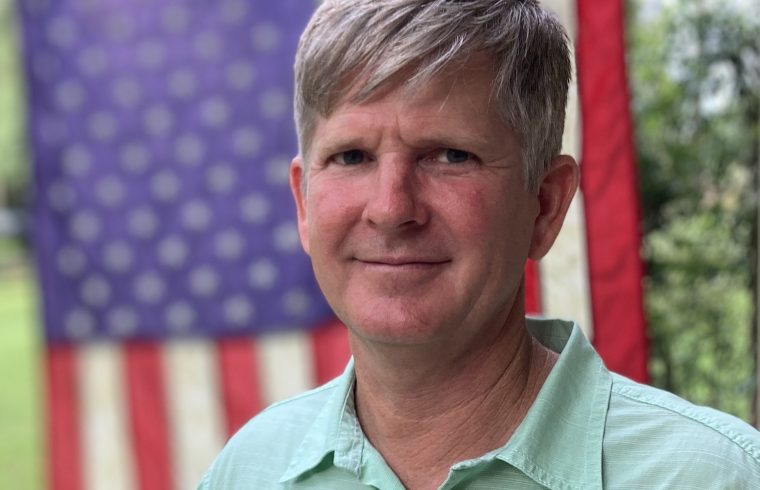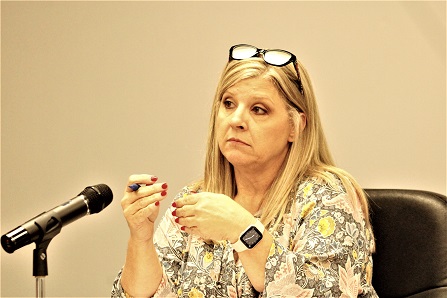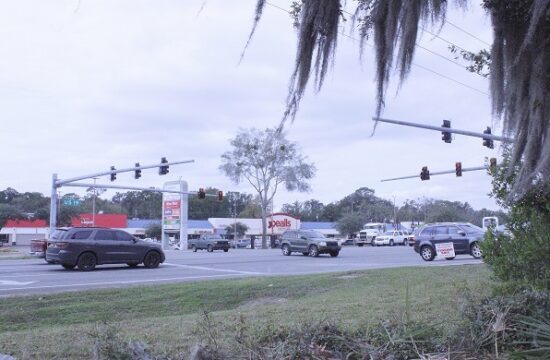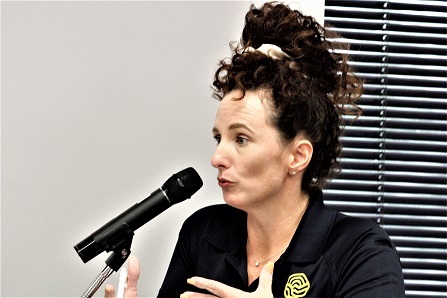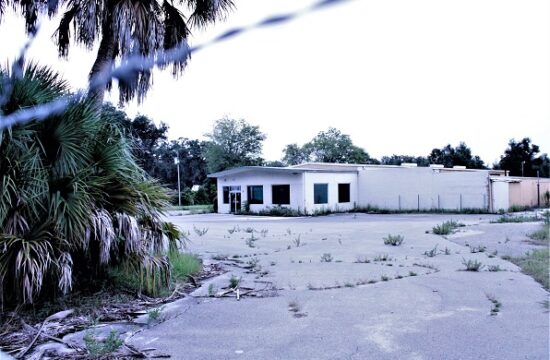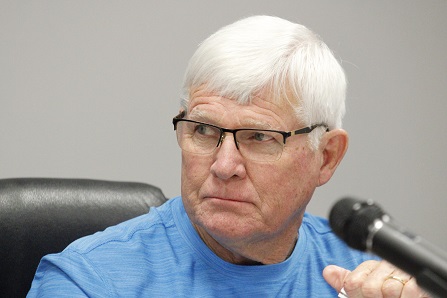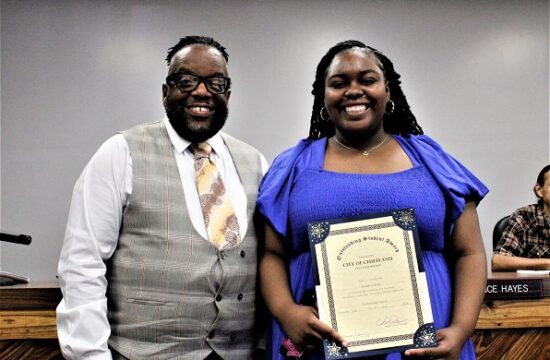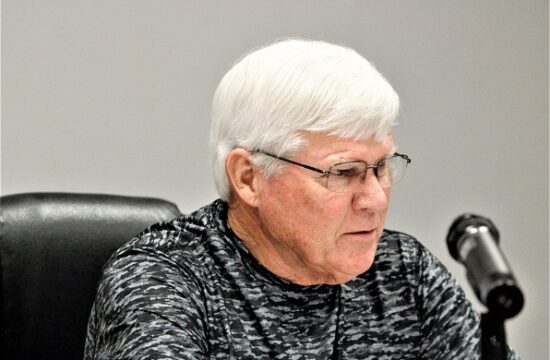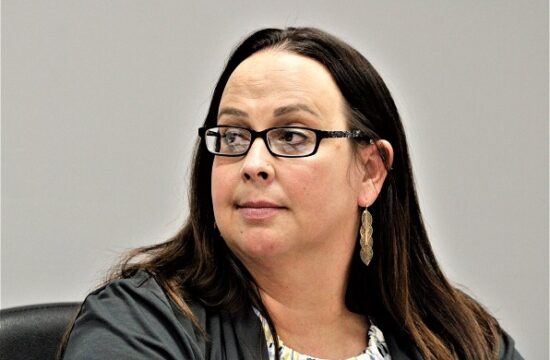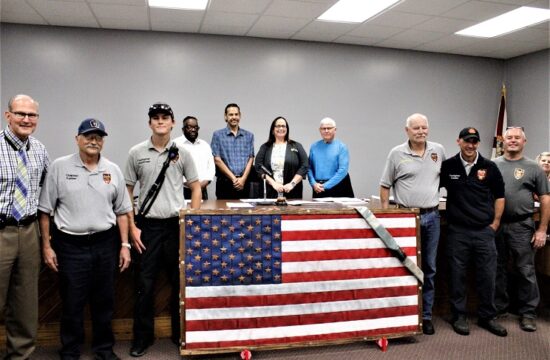By Terry Witt – Spotlight Senior Reporter
Chiefland City Commissioner Rollin Hudson is seeking another two-year term when he runs in the Aug. 3 city election.
He is the senior member of the board with 16 years of experience.
Hudson, a Chiefland farmer who holds a Bachelor’s Degree in agriculture education from the University of Florida, said he was asked by a number of people to run for re-election.
“I’ve had a lot of people approach me and ask me; they said we really need someone on the commission with some background in business. I said okay,” Hudson said.
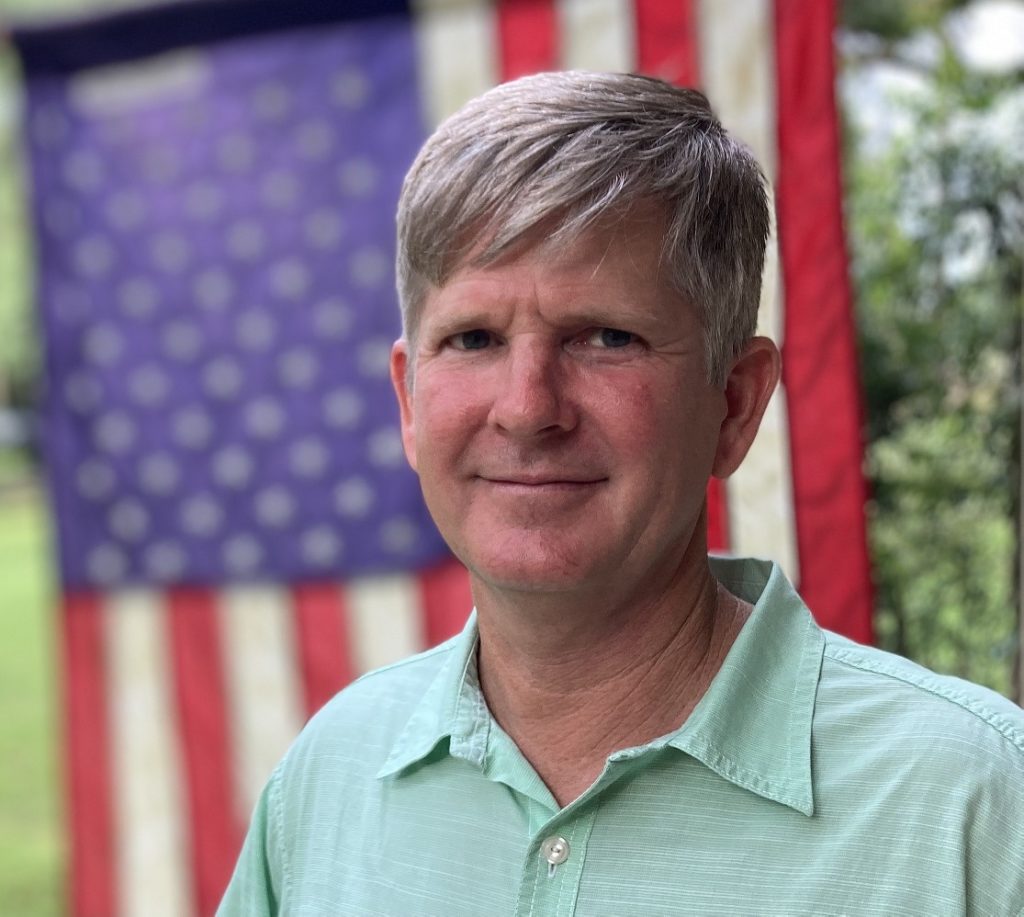
As a farmer, Hudson is involved in agribusiness.
He was asked what he thinks makes a good city commissioner.
“In my experience, 16 years, I have noticed you can have goals, but for me, it’s the reaction to something that comes up, a spontaneous problem that comes up, and how a person reacts to that problem. A person that reacts best to the unexpected problem is what you want,” he said.
Hudson served through the Great Recession and won’t forget the challenges the city faced when its tax base shrank and it was forced to make tough choices to survive.
“I’ve been through the Great Recession. That was quite unique and we survived, the city survived. When your tax base shrinks, what do you do? Do you raise millage rates or do you trim and you don’t buy any equipment. We struggled through it and it wasn’t a one-year deal. It took several years to overcome that and things are looking good and the city coffers are looking pretty good, but I remember those years,” he said. “My gosh it was rough, it was really rough. People were literally out of work. There weren’t any jobs to be had. We had to change. We had to do away with a full-time building and zoning department. When you don’t have anything being built, what’s the point of having it and that’s why we had to change and that was two big positions. Your grants keep a small town like Chiefland alive. You get good grants for police cars or for the fire truck, whatever percentage you’re going to get,” he said.
Hudson said he has learned to be patient with state projects. He has waited many years for the state to build a sidewalk along State Road 345 from U.S. 19 to west of the cemetery. He brought the issue to the city commission almost a decade ago citing the risk residents face walking along the busy highway. He insisted on the city applying for a state grant to build a sidewalk along the highway to serve people living in public housing projects along SR 345.
It’s been a long wait. The Florida Department of Transportation, which uses a very structured process to move projects into its five-year projects plan process, is scheduled to begin constructing the sidewalk in May of 2023, according to the DOT website. The cost is $625,277. The state will fund construction of the sidewalk.
“I’ve watched semi-trucks stop to go around someone pushing a baby carriage. It’s dangerous, dangerous. I’ve been pushing for 10 years to get a sidewalk in there,” he said.
On the north end of town, Chiefland residents now have the luxury of driving behind Bar-B-Q Bill’s restaurant to reach local fast-food restaurants, Wal-Mart, Chiefland’s two largest drug stores, Chiefland Medical Center, and a whole range of other small businesses. But the paved cut-through road behind the barbeque restaurant was blocked by a state drainage ditch for many years. The city obtained a state grant to connect the road and create a bypass street from the traffic light at U.S. 19 and State Road 320 to Wal-Mart.
“Teresa Barron (former city commissioner) might want to take some of that at-a-girl. I think Teresa and I pushed the hardest. It saves so much time to come out behind Bar-B-Q Bills to reach the red light. I pushed for that for 10 years,” he said.
More recently, Hudson proposed extending paving farther south on the street behind Bar-B-Q Bills to cover a pothole-filled dirt portion of the street. The road runs behind NAPA and Pizza Hut/KFC. Paving that section of NW 11th Drive would prevent delivery trucks at Pizza Hut and KFC from having to block U.S. 19 to service those restaurants and would give Chiefland residents a paved street that would ultimately pass all the way to U.S. 129, according to Hudson. He brought up the issue under commissioner reports and the board hasn’t made a decision on whether to act on Hudson’s proposal.
Hudson’s votes aren’t always popular. He was the lone commissioner to vote against implementing a fire tax and he also voted against raising water rates. He voted against both measures for the same reason – he said it would hurt the most economically deprived residents.
He said some people can’t afford to pay their water bills now.
“We have a lot of people in town in the lower-income brackets. They have a lot of trouble paying their water bill now,” he said. “I remember at one of our meetings a woman couldn’t pay her water bill. You don’t need to gouge them. You need to take that into consideration. When you raise the basic rate they can turn off their water and still have to pay more,” Hudson said.
More recently, Hudson voted against implementing the $129 fire tax for a home. The tax is also levied against businesses.
“I know a lot of people who have a house. They don’t have another $129 for the fire tax. If you don’t have it, you don’t have it. I have nothing against my commission. They’re all good commissioners. I’m not going to stand up there and beat my chest when I know I’m not going to win the vote anyway. I’m not against the commission or the decision they made. They made the best decision they could make at that time. I just have a different view. I know Chiefland. I know a lot of poor people in town,” Hudson said.
The city commission gave residents living at “very low income” levels the right to file for a hardship variance to avoid paying the fire tax. One person applied for the variance last year and was denied. Hudson said he knows a lot of people would qualify for the variance, but probably weren’t aware they had that option. The city advertised the option to apply for a variance in the legal ads section of a local newspaper but never attempted to notify residents in other ways.
Hudson said one of the issues that concerns him most is that the city could one day find itself running out of capacity at its sewer plant and have no way to fix the problem in a short period of time. He believes the current city sewer treatment plant is at 55 percent capacity but he said a large residential subdivision or a boom in housing could push the plant quickly to near capacity.
“When you get to 75 percent sewer capacity they start forcing you to start construction of something else and I think we are at 55 percent now. You don’t just build a sewer plant for a couple of million dollars. You are spending some serious funds,” Hudson said. “You have to buy a piece of property to build it on. It’s not logical to keep pumping to the south part of town when we’re growing north or northeast. You’ve got to move up.”
The city’s current sewer plant is built at the edge of Long Pond in the south part of the city.
Hudson said the city currently pays a farmer to spread the city’s sewer plant sludge on farm fields, but he said there could be a time in the future when the Florida Department of Environmental Protection changes its rules for sludge disposal.
“They could change their mind someday and who would take our sludge?” he said.
Hudson said the city’s sewer superintendent, Randy Wilkerson, is looking northward for land to build the next sewer plant.
He said building a new water plant wouldn’t be as difficult as building a sewer plant. The city already owns a capped wellhead north of town. He said the city could add a water pump and a tank to create a new water plant for perhaps $1 million. The money could probably be borrowed.
————
***** Reporter’s Note: Rollin Hudson’s opponent in the upcoming Aug. 3 city election, LaWanda Jones, declined to be interviewed. She asked if Spotlight would send her written questions as an alternative to be interviewed. She was told Hudson had already interviewed and Spotlight wouldn’t send her written questions. Sending written questions allows candidates to solicit advice from others. Spotlight attempted to secure an interview with Jones for three days. On the third day, she canceled an 11 a.m. interview with a text, saying she would call back as soon as she could. Spotlight informed her that it was apparent she wasn’t comfortable doing an interview. As a news organization, we weren’t going to pressure her for an interview. We wished her the best.
Enterprise Reporting by Terry Witt July 11, 2021; Posted July 11, 2021


